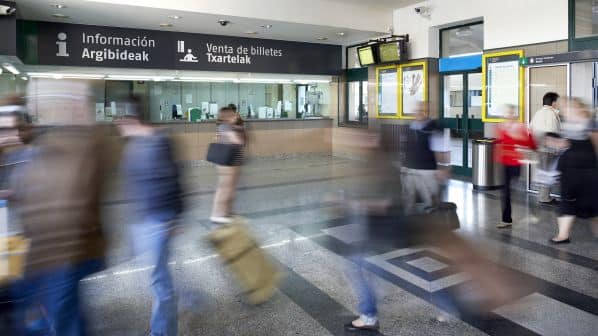THE European Commission (EC) has accepted proposals by Spanish national operator Renfe to address concerns that it might have abused its dominant position in the Spanish railway ticketing market.
Renfe has committed to grant third-party ticketing platforms access to its data by the end of February, a move that has been welcomed by the European Consumer Organisation (BEUC). “It should mean that consumers in Spain will have better choice on where to buy Renfe tickets,” says BEUC director of legal and economic affairs, Mr Agustín Reyna.
The EC launched an investigation in April 2023, expressing its preliminary concerns that Renfe’s apparent refusal to provide rival ticketing platforms with comprehensive information and real-time data on its services might be hindering their ability to compete with Renfe’s online distribution platforms.
The EC says that the third-party ticketing platforms need to have access to Renfe’s full content and real-time data displayed on Renfe’s own digital channels to tailor their offers to passenger needs and to compete effectively with Renfe. Refusal to provide this information would be a potential breach of European Union (EU) competition rules.
In light of these concerns, and following consultation by the EC with third-party ticketing providers during the investigation, Renfe has committed to provide all current and future content and real-time data provided on all its online channels to third parties by February 29. The Spanish national operator will also enforce a so-called Look-to-Book ratio, balancing the operational needs of its sales system with the competitiveness of rival platforms. It also commits to not exceed a maximum monthly error rate of 4% in 2024 and a maximum monthly unavailability rate of 1% in 2025 to ensure that third parties benefit from high-quality IT services.
In addition, the commitments include a non-circumvention clause whereby Renfe commits not to use any unfair, unreasonable or discriminatory technical or commercial measures that would impede or hamper access to and distribution of its content and real-time data.
The legally-binding commitments will remain in force for an indefinite period and implementation will be monitored by a trustee appointed by Renfe who will report to EC for a period of 10 years.
The EC accepts that the commitments have addressed its preliminary concerns over Renfe’s alleged abuse of its dominant market position. The EC’s executive vice-president in charge of competition policy, Ms Margrethe Vestager, says the decision “opens up competition in online rail ticketing services in Spain.”
“From now on, independent ticketing platforms will have access to all the information necessary to innovate and compete effectively with Renfe’s online distribution channels,” Vestager says. “This is crucial for more affordable rail services and promoting environmentally-friendly means of transport.”
“This decision sends a signal to other train operators elsewhere who might be restricting access to important ticketing and real-time data,” Reyna says. “The issues identified in Spain must also be dealt with EU-wide so all consumers can benefit from simpler, more transparent, competitive and diverse ticketing options.
“That’s why it’s so important that the Commission also urgently proposes a Multimodal Digital Mobility Services Regulation, a green mobility policy to give consumers a real alternative to travel more sustainably in the EU.”

